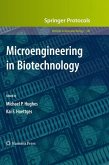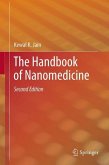Microelectronic engineering has revolutionized electronics, providing new, faster and cheaper ways of doing things - and now the same technology is being applied to biotechnology and molecular biology. As sample volume is reduced, reaction speed and detector sensitivity are increased whilst sample and reagent requirements and device cost are reduced. Microelectronic engineering provides the potential for bench-top versions of large and expensive equipment such as flow cytometry, or novel ones that exploit physical phenomena on the micron scale, such as dielectrophoresis for cell analysis.
In Microengineering in Biotechnology, experts in the field contribute chapters aimed at instilling in the reader a working understanding of the methods underlying microengineering and the means by which such methods can be used for a range of analytical techniques. It describes the methods by which microengineered devices can be built to perform a number of applications and considers how the field may progress by examining some more complex lab on a chip devices which have great potential in the advancement of the way in which molecular biology is performed. As a volume in the highly successful Methods in Molecular Biology(TM) series, this work provides the kind of detailed description and implementation advice that is crucial for getting optimal results.
Cutting-edge yet easy-to-use, Microengineering in Biotechnology serves as a reference guide for practical microengineering techniques and as a route into the development of new devices for biological applications in order to strengthen the promising union of molecular and cellular biology with microelectronics.
In Microengineering in Biotechnology, experts in the field contribute chapters aimed at instilling in the reader a working understanding of the methods underlying microengineering and the means by which such methods can be used for a range of analytical techniques. It describes the methods by which microengineered devices can be built to perform a number of applications and considers how the field may progress by examining some more complex lab on a chip devices which have great potential in the advancement of the way in which molecular biology is performed. As a volume in the highly successful Methods in Molecular Biology(TM) series, this work provides the kind of detailed description and implementation advice that is crucial for getting optimal results.
Cutting-edge yet easy-to-use, Microengineering in Biotechnology serves as a reference guide for practical microengineering techniques and as a route into the development of new devices for biological applications in order to strengthen the promising union of molecular and cellular biology with microelectronics.








